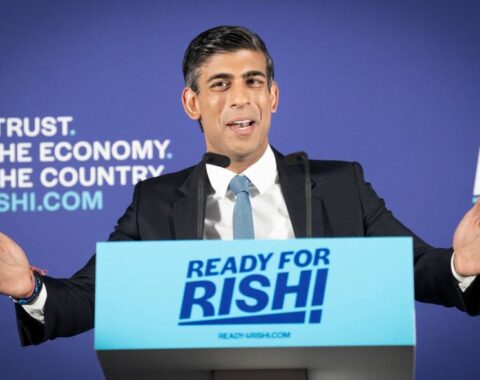Article Published in LinkedIn.
ORIGIN OF PUBLIC INTEREST LITIGATION
The collective efforts of Justice V.R Krishna Iyer and Justice P.N Bhagwati is where the story of P.I.L began. It is the result of the judicial activism of the Supreme Court. Justice P.N Bhagwati also known as the father of PIL took up the first case in the account, the case taken by these pioneers was Hussainara Khatoon v. State of Bihar (1979) in which Difficulties of undertrial prisoners and them being forced to serve years in prison with their trial still to commence in the court. This in particular caught the eye of a lawyer who petitioned in this case in the Supreme Court on behalf of prisoners.
On similar lines Justice V.R Krishna Iyer caught hold of a note scribbled by an inmate of Tihar Jail, opposing the brutal behaviour they came up against- this was the case of Sunil Batra v. Delhi Administration, which Justice V.R Krishna Iyer got converted into a PIL and initiated the proceedings. Over the years, the number of PILs filed has only gone up with many public-spirited citizens and social activists stepping up to help the disadvantaged.
CASES OF THE ABUSE OF THE PIL
The abundance of frivolous lawsuits filed by political and other irrational people motivated to further their own objectives has frequently tarnished the eminent image of PILs in India.
The Delhi High Court in an order dismissed with costs of Rs 25,000 of a PIL seeking to deport all foreign nationals who are in custody for overstaying in India beyond the period of expiration of their visas. A bench of Chief Justice D N Patel and Justice Jyoti Singh stated in this litigation that the so-called public interest litigation was preferred for some particular motive or agenda, and hence directed the petitioner to deposit the penalty with the Delhi State Legal Services Authority within 4 weeks.
The Calcutta High Court in a similar fashion dismissed a PIL filed with the reference to certain highly technical issues pertaining to Covid-19 vaccination, where the court refused to say anything on the efficacy of the Covid-19 vaccine. A Division Bench of Acting Chief Justice Rajesh Bindal and Justice Rajarshi Bharadwaj expressed that the present case does not call for interference by the High Court as there is no expertise available to comment on the effectiveness of the vaccines or their side effects as is sought to be argued by learned Counsel for the petitioners.
Similarly, The Supreme Court dismissed a batch of appeals filed by some people related to a 2009 housing project in Maharashtra”s Osmanabad district against a Bombay High Court order which had led to the filing of an FIR against them for alleged irregularities in the scheme. A bench comprising justices L Nageswara Rao and S Ravindra Bhat took note of the judicial records and the fact that out of over 1200 dwelling units for the poor, 302 housing units were constructed in different localities of Naldurg municipality and of which 202 could be used and 100 were in an unusable and dilapidated condition.
The Supreme Court has also dismissed in close vicinity a PIL seeking compensation for lawyers who died of Covid-19 as bogus and imposed a cost of ₹10,000 on the lawyer who filed the public interest litigation (PIL) terming it as public interest litigation. The PIL filed by advocate Pradeep Kumar Yadav demanded ₹50 lakh compensation for a family of lawyers aged less than 60 years who died due to Covid-19 or any other reason.
SUGGESTIONS TO PREVENT THE ABUSE OF THE CONCEPT OF PUBLIC INTEREST LITIGATION
In the opinion of former Attorney General, Soli Sorabji, three basic rules should be followed in order to regulate the filing of Public Interest Litigations. They are:
- Not hearing uncertain and doubtful PILs and rejecting them at the beginning itself. Also, it is suggested to impose high costs on them so that they act as a deterrent in the future.
- Petitions which are directed against some socio-economic regulation or important project after a long time should be outright rejected by applying the general rules of litigation.
- In order to gain trust, PIL practitioners should be asked to provide assurance in the form of undertaking to the court that they would recover the damages, in case the PIL is dismissed.
- The media should highlight cases of abuse of PIL, just as much as it glorifies the concept of PIL and its success. Conducting various kinds of programs and through means of visual media, it can spread awareness about the abuse of PIL and the punishment given to such petitioners to create a deterrent effect on others.
- Lawyers should actively refuse to represent such malicious petitioners. Discipline and ethics should be strongly emphasized in the profession and lawyers should not take up to defend such causes which abuse the PIL.
- The court should check that the reason for the filing of the petition is bona fide and is not backed by private interests. It should serve the manipulated or corrupt.
CONCLUSION
Public Interest Litigation is an important component of judicial activism. It strengthens the judiciary to come to the rescue of its people. Therefore, it is important that the idea is applied carefully and is not misused to further one’s own interests. There have been instances of such PIL misuse and exploitation in recent years, which ought to act as a deterrent to stop future occurrences of this nature. PIL has the potential to benefit the common people if applied correctly and for the right reasons. New ways and methods should be formulated to sieve out frivolous petitions so that justice is served fairly and well within time. The founding fathers of our country envisaged the judiciary as “a bastion of rights and justice.” The tools of judicial review, activism and action in the public interest through PILs are the tools to achieve complete independence of justice machinery and due discharge of duties.





